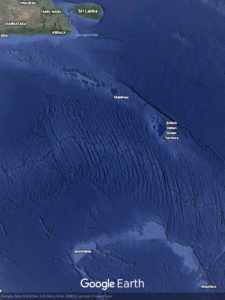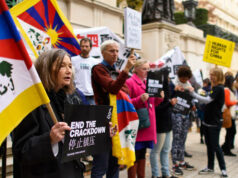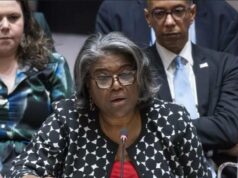By Colonel Awadhesh Kumar, Veteran Special Forces
In 1947 Britain had to give up the Indian Sub Continent but before leaving, it ensured creation of Pakistan. Though timely and resolute action of Sardar Patel ensured that further balkanisation did not take place. What is little known that in 1947, a section of the British Government was in favour of retaining Andaman & Nicobar chain of islands but better sense prevailed. Otherwise like liberation of Goa, the Indian Forces would have been forced to liberate Andaman too from the British and that would have been the end of the association of Commonwealth as it exists today.
Towards East, Burma gained independence in Jan 1948 but Malaysia together with Singapore became free only in 1957. On the other hand Brunei gained independence as late as 1984.
It is also worth re capitulating that Ceylon or SriLanka was vacated by the British in Feb 1948 but Maldives had to wait for full independence till 1965. Even then the island of Gan was retained as an airbase for the RAF and they finally quit only in 1976. Here we need to mention that in 1947 Pakistan on prompting from some quarters had also made a move to claim Lakshadweep group of islands. However one Indian Naval Ship was there much before the arrival of any boat flying Paki flag.
Then towards West, in the Persian Gulf, UAE, Oman and Qatar were all British protectorates till 1971. Though Kuwait had full freedom in 1961 itself. In fact Kuwait had been part of kingdom of Iraq and had been separated after the first world war as a British game plan to punish the King of Iraq because he had shown inclination towards the Germans. Many years later, just like India taking back Goa forcibly from the Portuguese raiders, Sadam Hussain tried to re integrate Kuwait back with Iraq and in bargain was made a villain by those opposed to him.
Further West Mauritius became independent as a dominion much later in 1968 and became a republic in 1992. While Seychelles which was separated from Mauritius in 1903 gained freedom in 1976. However, just as they did to India, while leaving Mauritius, the British backstabbed them in the most slimy manner. They just forcibly separated out the Chagos Archipelago from Mauritius in 1965, prior to Mauritian independence. This was ultimately an indisputable show of brute Colonial power.

Chagos Archipelago has nearly 1000 islands, most very small (there are only 55 islands having noticeable size), with total land area of just 60sq km. The largest is the Diego Garcia covering around 27 sq km and site of a big American military base. Before leasing the island to the Americans, all the 2000 Mauritians men, women and children were forcibly evacuated by the Brits and sent to mainland Mauritius.
Thereafter the island was occupied by around 4000 US military personnel along with some British troops and civilian contract workers.Since 1980 the people and the Govt of Mauritius have been raising this issue in all the world forums.
Last year in June, United Nations General Assembly too had passed the resolution by 94 votes in favour and 15 votes against, for the matter to be taken to the International Court of Justice. The plea has been taken to International Court of Justice for the issue to be decided.
Britain has remained adamant that the International Court of Justice is misplaced in regarding Chagos as an issue concerning state sovereignty and self-determination. The British refusal to Mauritius’ claims of mistreatment and injustice shows that Britain is not in tune with contemporary international balance of power.
At its core the Chagos problem is simply Britain’s past colonial character and arrogance of forcing its will on the global stage even when no one is accepting it. Such behaviour does not, of course, go unnoticed. In a crushing defeat Britain stood with the support of only three nations, whilst Mauritius saw its plea to the ICJ supported by seventeen other countries and the African Union.
Amongst the seventeen that have supported Mauritius are a number of key targets for post-Brexit trade such as India, Brazil and South Africa. India, pre-eminent in this regard, went as far as to issue a formal statement that their position on the Chagos issue was formed by their longstanding commitment to decolonisation.
In 2017 Canadians offered a formal apology to a group of indigenous people in the Newfoundland and Labrador provinces for forcibly tearing them away from their homes to boarding schools for decades. This year the French President Emmanuel Macron announced repent action for repatriation of African cultural heritage held in French museums in spite of resistance from some quarters. Australians too have begun to make right noise with respect to their aboriginal population.
In all these cases, historical injustices have been acknowledged in the public and in the process new relationships are being sought. The ever growing dynamics of new emerging power equations that are now unfolding, are leading to new political and economic collaboration among the nations. In the wake of Brexit, the UK should perhaps make a new start by addressing the many ills of the old British Empire, with a view to form fresh and dynamic international partnerships.
Yet the British government, despite calls from a majority of its people for a new, post-Brexit, Britain, does not seem particularly interested in working with emerging powers of the world. Instead, Britain’s elite establishment appears to be stuck in a state of diplomatic inertia. In 2018 world affairs are being influenced not by Washington alone but equally by New Delhi, Moscow, Bejing and Tokyo.
Thus if Britain hopes to keep up with the rest of the world and truly succeed beyond the image of a mere flunky to the US, then it must forget that it is a permanent member of the UN Security Council. Such a Security Council is meaningless because of absence of India from it.
The Chagos dispute is precisely the sort of conflict that Britain should avoid at all cost otherwise over a period it risks getting marginalized. Chagos case indicates that Britain is just not ready to overcome barriers resisting cooperation with other countries. Due to this Britain will not only get isolated but also face pressure for vacating its permanent membership of the Security Council. Britain, a founder member of the ICJ has already been ousted by India.
Whatever the ICJ decides regarding the Chagos Islands, the British government should review its conduct during these proceedings and reflect on its inward-looking colonial tendencies.After exiting the EU, Britain will need as many friends as possible. But if it isn’t able to comfortably assimilate into modern day international politics, it will get isolated.
It is still trying to play the Great Game for which it is no more equipped. So it needs to stop playing games especially against India. Thus British MPs should stop raising issues regarding Kashmir an integral part of India or per force India may start raising issues pertaining to Northern Ireland. Similar is the issue of Khalistan. In the name of Human Rights even Scottish problems may be raised by others.
Britain will face a very long road ahead in case it does not vacate Chagos Archipelago in an honourable manner. Also in no case Britain Should try and link the issue of vacation of Chagos with the American base at Diego Gracia. Mauritius or any one else is not asking the Americans to vacate. Though as a food for thought for every one, It is for nothing that this part of the World is called the Indian Ocean.
In 1982 Britain somehow survived the Falklands crisis. Now if it does not mend its way fast, then Malvinas may soon become an Argentinian territory.



